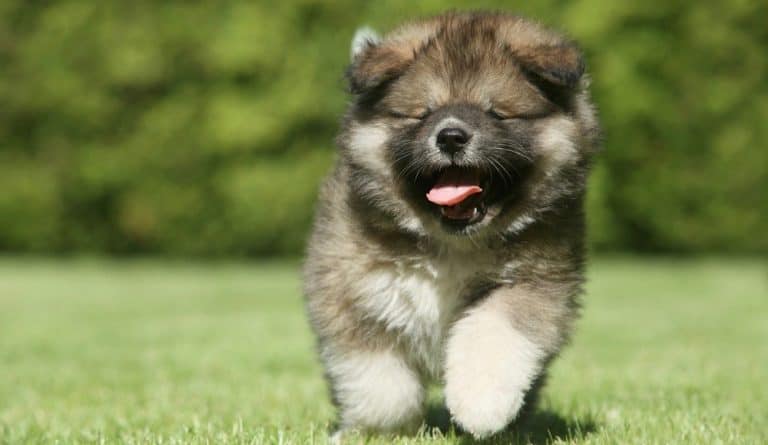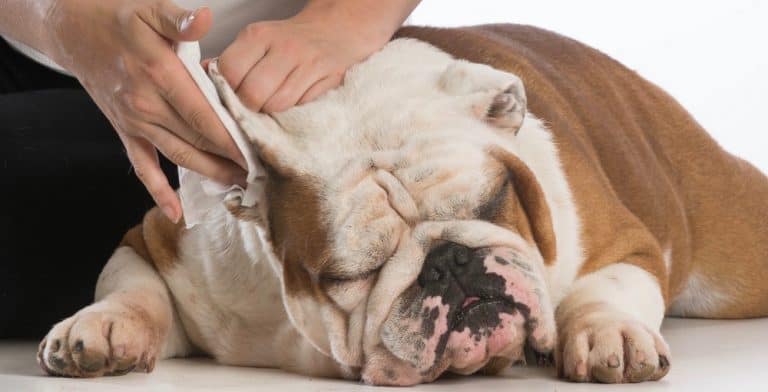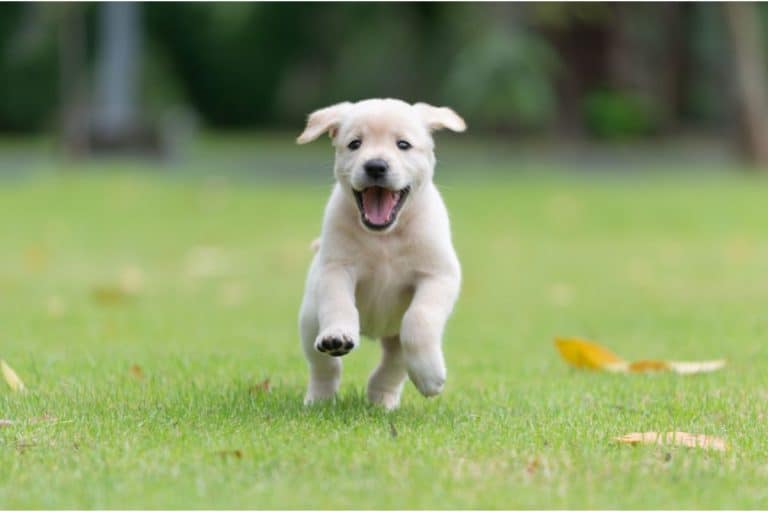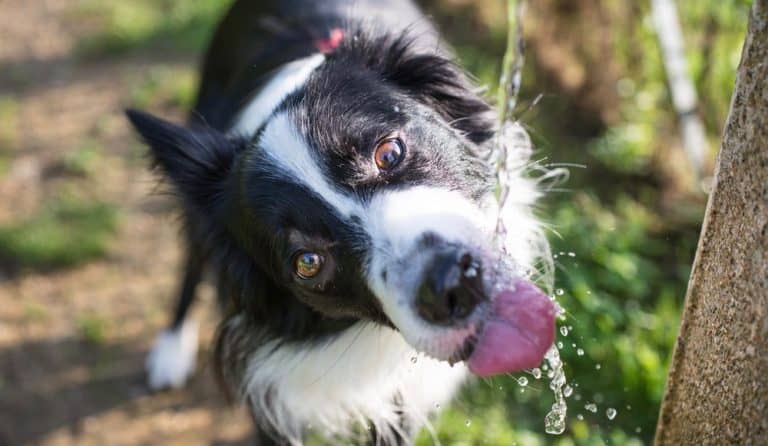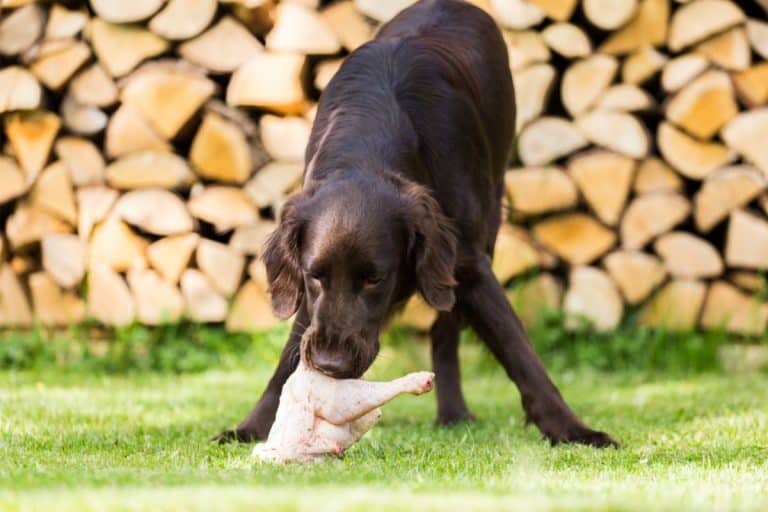My Dog Keeps Hiccupping And Swallowing
All humans suffer from hiccups every now and then, but it can be disconcerting when it keeps happening or happens over a long period of time.
If you have been thinking to yourself, “my dog keeps hiccupping and swallowing and I don’t know why,” we can help.
For humans, when we have a round of hiccups, they pass soon enough and we move on with our lives.
Is that the same for dogs? It is understandable to be concerned about whether hiccups might be an indication of trouble.
Dogs and humans are totally different species after all and we have very different symptoms.
If your dog is hiccupping, swallowing, licking, and even gulping excessively, you should pay attention to a few different things, including time of day, whether your dog has just eaten, or whether he is still growing.
Here’s what you should know and how to ease your mind.
What Are Hiccups?
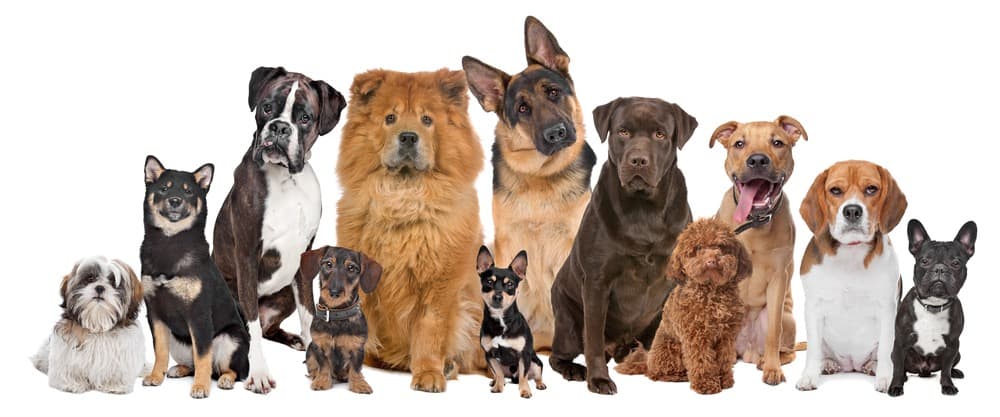
Hiccups are involuntary spasms or contractions of the diaphragm. It is the same with humans. The diaphragm is shaped like a dome and it separates the chest from the abdomen.
The diaphragm’s job is to help with respiration. So, when your dog takes a breath, the diaphragm will move downward to make room for the lungs to fill up with air.
When the dog breathes out, the diaphragm realizes and moves upward into the chest cavity. This is a constant movement, always smooth and regular, unless there is a case of hiccups.
When the diaphragm spasms for whatever reason, hiccups are the result, disrupting the rhythm of breathing in and out.
Dogs can get hiccups from a few different sources, including stress, poor sleeping habits, and even going without meals for a long time.
Dietary changes, adding medicines, or any other major disruption can interfere with your body, therefore interfering with how your diaphragm works and operates.
When the diaphragm stops spasming, then the hiccups 2 will stop. For some people it is a matter of time, so with your dog, it might also be a matter of time.
It is hard to know the cause, but you should feel free to let your dog run around.
It should burn off any extra energy while still distracting the dog from the hiccups, which may help them stop. When there is no focus on them, hiccups in dogs and humans tend to go away.
Puppies
The first major question to ask yourself is how old your dog is. The thing about puppies is that they are constantly growing.
Just like the case with human babies, puppies’ stomachs and bodies are moving, which can cause spasm, especially after they have just eaten.
Many puppies inhale their food, eating as quickly as possible, which will result in hiccupping. This is totally normal.
If your puppy continues to eat too quickly, then you might want to look into getting a slow feeder bowl that forces the dogs to slow down while they are eating, giving them an easier time digesting.
This will also happen if they drink a lot of water really quickly. They will get spasms in their diaphragm and they are nothing to worry about at all.
If your puppy is drinking so much water that they throw up or are just getting hiccups all of the time, you might want to keep his water in a smaller bowl so that he cannot drink as much at once.
But, with a smaller bowl you will need to refill it often, so make sure that you are prepared to stay up on that task if that is the direction you need to go.
Puppies are also less developed than adult dogs, which means that their organs are not fully as large as they should be or as functional as they will be.
Therefore, as the body tries to work out its next move, hiccups might come out as a surprise.
Adult Dogs
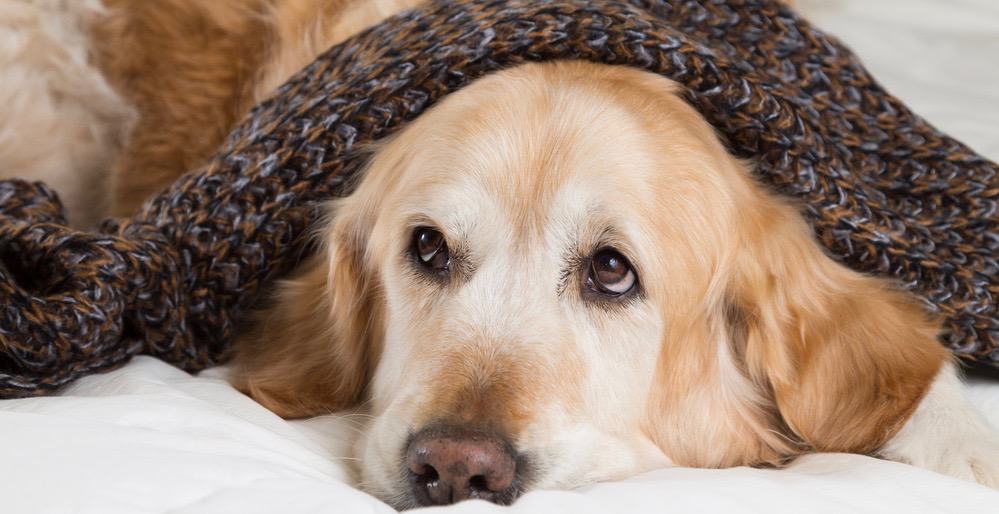
Adult dogs are far less likely to have hiccups normally than puppies are.
Where puppies eat their food too fast or drink too fast, adult dogs are less likely to do this. In addition, puppies have a lot more energy to spend, which will result in more hiccupping.
If your adult dog hiccups once in a while, there is nothing to worry about.
Humans do that too. But if your adult dog is hiccupping and swallowing a lot, then you will have more cause to investigate what is happening with your dog.
Home Cures
Generally speaking, home remedies for most ailments are a bad idea. Most dog owners are not vets or chemists, so they might wind up with quality less than desirable.
The best home remedy that you should try is brushing your dog’s teeth.
You might be asking yourself “my dog keeps hiccupping and swallowing and why is that?” But dental hygiene is a potential cause.
To help with any plaque build-up in the dog’s mouth or just get the dog into a food habit cycle, try brushing in your dog’s teeth and see if that makes any difference for him.
If he had been eating something other than dog food, it is more than possible that something got stuck in his gum. A vet would be able to rule that out for you.
Giving your dog something sweet or adding something sweet to their water might also help with swallowing and hiccupping.
The sweetness can draw your dog’s attention away from the hiccupping and put his focus on what he is consuming. Often, this will calm down the dog and the diaphragm down enough that the hiccups stop.
Acid Reflux
Beyond after-dinner spasms, when a dog is having gagging, swallowing, and throat spasms regularly, the most likely cause is acid reflux.
While this is not good for their throats or their teeth, it is a common condition in humans and dogs and is thankfully easily treatable.
You will want to take your dog to your vet first and confirm that it is indeed acid reflux that is causing all of the trouble for your pup. The longer you wait to have it confirmed, the more damage that acid reflux can inflict upon dogs.
The kinds of treatment for dogs are much like the kinds of treatment for humans, including medications like Prilosec. Never give your dog any kind of medication without talking to your vet.
All medications have some side effects and even beyond that, even when a dog can take a human medication, it does not always directly transfer.
Your dog is most likely smaller than you can you will not cure a health condition by creating new ones by giving your dog improper medication.
In the same vein, there is also oesophagitis, which is the inflammation of the esophagus.
This is caused by acid reflux and will result in frequent swallowing as your dog attempts to dislodge something from his throat, even though there isn’t anything there.
When a dog has esophagitis, he might wind up regurgitating his food.
It is important to differentiate this from vomiting because regurgitating is where the food does not make it down the throat and then comes right back up without ever going into the stomach.
Nausea
In addition to acid reflux, continued swallowing can be a sign that your dog is nauseous. Typically, when a dog is nauseous, he will start drooling a lot more, so the swallowing is him trying to keep the saliva from pooling inside of his mouth.
Another sign that your dog might be nauseous is that he might be licking random objects, such as the carpets, floors, and walls.
If your dog is swallowing, hiccupping, and randomly licking objects that he normally does not do, it is a good time to give your vet a call and have your dog looked at.
Sometimes, licking and swallowing can also mean something else, like he is having a dental issue or he has something stuck up his gum and is trying to dislodge it.
If your dog will let you look inside of his mouth or if you feel safe about doing a finger sweep inside of his mouth, you might be able to rule that out as an issue.
That should not cause a dog to hiccup, but excessively swallowing could do it.
If your dog is nauseous, there is going to be some underlying cause, however large or small, so if the drooling, swallowing, and random licking has not stopped after a day or so, make sure you take your pup in.
The vet will be able to rule out anything serious and figure out what is going on with your dog.
Other Medical Conditions
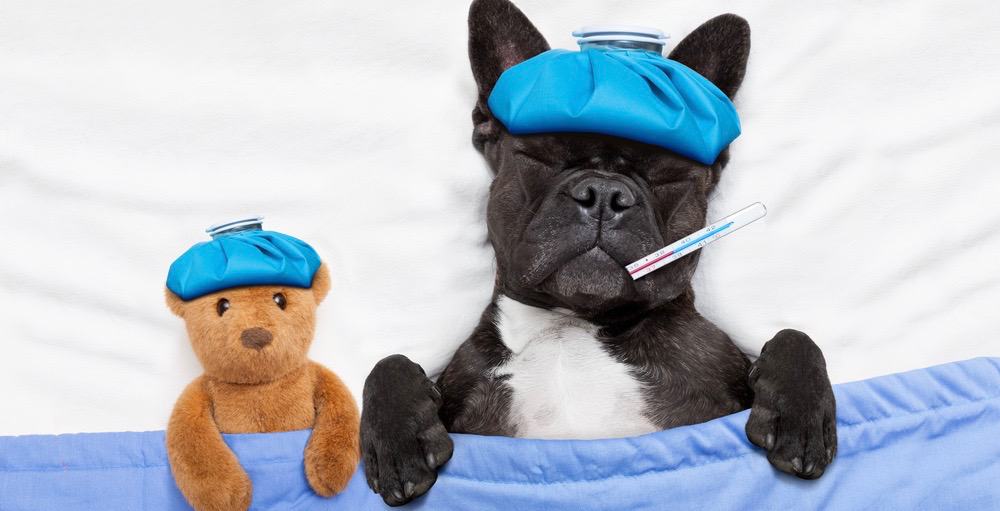
Unfortunately, excessively hiccupping and swallowing can also be a symptom of underlying conditions. These are most often extremely rare and should be nothing to worry about, but they may need to be ruled out if the symptoms continue for too long of time.
These health conditions include:
Respiratory defects
A respiratory defect may be something that your dog was born with and something that does not come up until he is older.
When he has trouble breathing, he may be swallowing a lot and even hiccupping as he tries to get more air in. Depending on what is going on, the solution for a respiratory defect will vary.
Pneumonia
Pneumonia can come on suddenly and will have the same signs as a respiratory defect. Your dog will be struggling to take a full breath, which could result in breathing issues as well as swallowing.
Pneumonia is most often treated with a round of antibiotics, as long as it is not serious, so the swallowing and illness could be cured rather quickly.
Asthma
Asthma is another breathing concern that will exhibit the signs of excessive swallowing and hiccupping as your pup tries to breathe.
Asthma is a chronic condition, so it is not something that will be easily fixed with a round of antibiotics. Instead, your dog might need to do breathing treatments to keep it under control.
Pericarditis
While pericarditis has to do with the heart, a dog with this condition will also suffer from breathing issues that might exhibit as having trouble swallowing.
Pericarditis is when there is inflammation around the sac within the heart that holds it in place. When this is swollen, more pressure is put onto the heart, making it harder for the dog to breathe, resulting in the symptoms of hiccupping and swallowing.
Heat Stroke
Heat Stroke is incredibly serious. This is when a body has become so hot that it is going to shut down.
The excessive swallowing might be a sign that the dog is thirsty, but confused and will not be able to indicate that he needs a drink of water.
If the environment where you are with your dog is very hot, it might be a valid concern as to what is going on with your dog.
If that is the case, take your dog to a vet immediately. Heatstroke can be fatal very quickly.
Going to the Vet
Before you head into the vet, make sure that you are prepared well to discuss your concerns. It can be very frustrating as a pet owner to go in and then feel as if your concerns are not real and wind up with no solutions.
Instead, prepare for your visit as if you are going in for an important business meeting. Make proper notes about what you are going on.
The dog may not be able to perform the swallowing and hiccupping during the appointment either, so make sure that you have a video with you that shows your concerns from more than one angle.
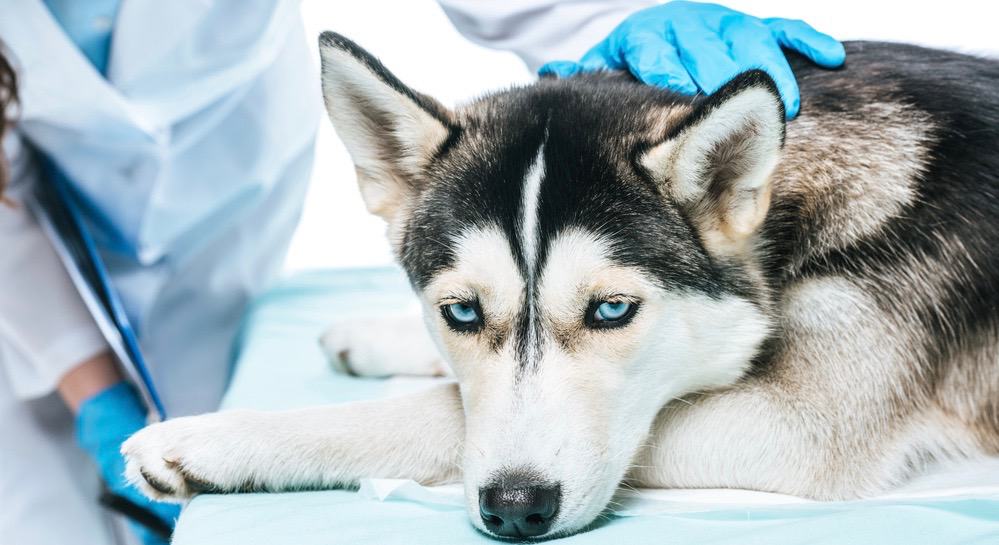
Additionally, make a quick log of the things that you have seen, how often, you have seen them, and how long they have gone on for.
If the hiccupping has been happening for two hours a day, note that, what time is it, and what your dog was doing before that occurred.
All of this information will help your vet create a timeline and better understand what you are concerned about and then be able to offer you real solutions.
Having evidence of the situation will help you a lot more, helping your dog a lot sooner and preventing anything from wasting time.
Your vet will surely believe your reports and concerns about symptoms, but allowing them to see what you are seeing at home will make the diagnosis part of the process much smoother and easier, getting your pup the help that he needs a lot sooner.
Also, you should seriously take your dog to the vet. Do not try a bunch of home remedies or medications that may make an actual condition worse or make your dog feel poorly.
Your vet will already know what your dog can and cannot have, so go with the scientific and medical advice rather than doing something that you think might work on humans.
Dogs are not humans. Call your vet and tell them “my dog keeps hiccupping and swallowing” and go from there.
Final Thoughts
It is incredibly disconcerting to be a pet owner and have something seem amiss with one of the beloved members of the family.
That is why if there is a symptom like hiccupping or swallowing that is going on excessively without end or just keeps happening, you may be a little bit worried.
Do not worry or try to do something for your dog at home. Call your vet when something happens, such as excessive swallowing, to get more guidance about what you should do next.
Remember that you are your dog’s advocate. Your dog cannot tell you what hurts or whether everything feels ok.
You can only go off of the signs and symptoms that your dog is showing and then you need to be able to read them well enough to act upon them.
Do not be embarrassed if your dog turns out to be ok. It would be worse to wait and find out that it was all something more serious.
You love your dog and want the best for him. If symptoms such as hiccupping repeat often and do not go away, call your vet.
Even if it is nothing, you will at least have the peace of mind of knowing that your dog is ok.


